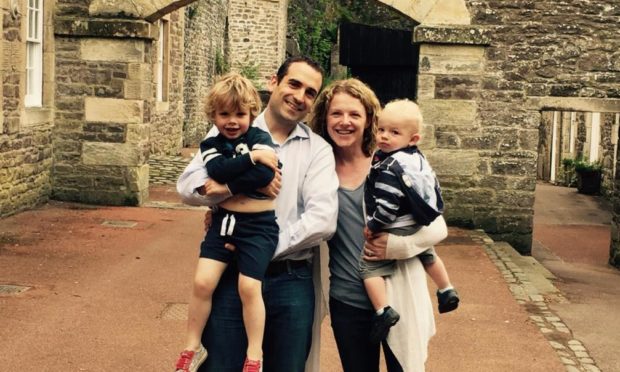A terminally-ill father-of-two has welcomed a pledge to consider prioritising Covid-19 vaccines for palliative care patients.
Fred Banning was diagnosed with Stage 4 bowel cancer in February and told he had nine months to live without treatment.
The 38-year-old, who has been shielding throughout the pandemic, welcomed a pledge by Cabinet minister Michael Gove to consider prioritising palliative care patients in the vaccine roll out.
It comes after marketing executive Mr Banning launched a campaign to raise awareness of the plight of those with a terminal illness.
If those in palliative care hospices in the UK are pushed up the vaccine priority ladder then they may be able to spend vital weeks or months with loved ones.
Appearing on Sky News, Mr Gove said: “It is an incredibly moving situation when you have people who are living with diseases and we are reviewing how we can make sure that the most vulnerable and those in clinically difficult positions can be vaccinated.
“Obviously, it depends on the number of vaccines we can secure, but absolutely when you have a moving example like that, and there are all too many, we want to make sure that people are vaccinated so that they can be with those they love at what is inevitably an incredibly difficult and stressful time for the family.”
The Fred campaign was backed by 13 leading charities Marie Curie, Beatson Cancer Charity, Ruth Strauss Foundation, Cancer Support Scotland, CHAS, Brains Trust and Pancreatic Cancer Action.
Mr Banning, of East Renfrewshire, said he was “encouraged” by Mr Gove’s assurances but “urgent clarification” was needed on the extent the roll-out plans would consider palliative patients.
It would also be “helpful” to know whether Matt Hancock agreed.
Mr Banning added: “It is fantastic to see people like Margaret Keenan become the first recipient of the vaccine and it is important that we protect our most vulnerable citizens, but for those of us in palliative care, receiving the vaccine will make a demonstrably huge impact on the quality of our life and death.
“Receiving the vaccine as soon as possible could allow terminally ill patients to spend more time making memories with the friends and family that really matter. It would remove the crushing anxiety and extreme risk of doing very simple things that are taken for granted like the school run, or the family shop.”
